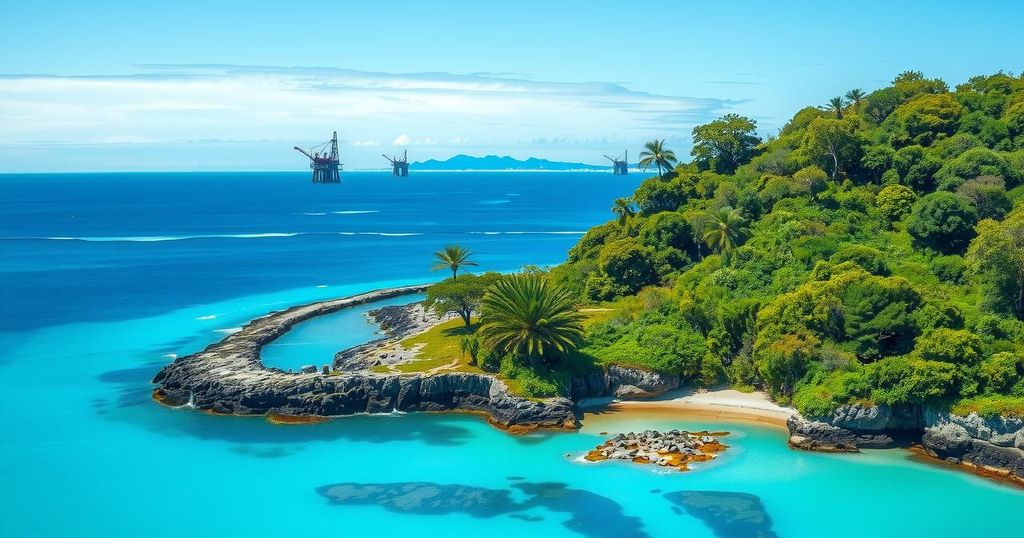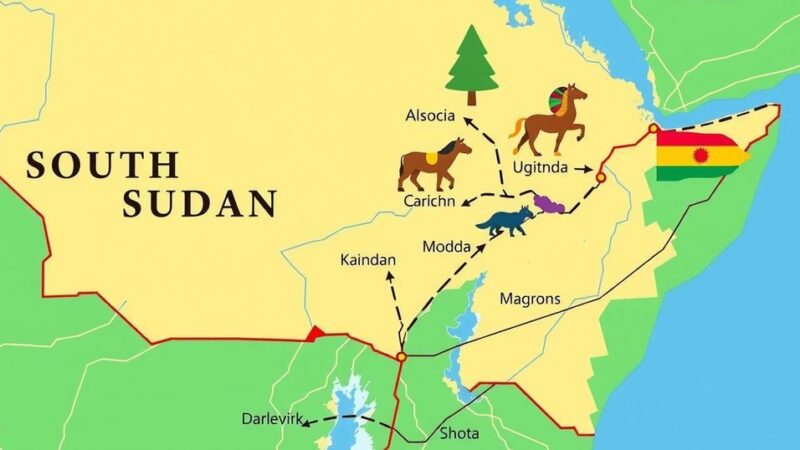U.S. diplomat Marco Rubio warned Venezuela against aggression towards Guyana, emphasizing military consequences for escalating tensions over the oil-rich Essequibo area. Rubio assured cooperation with Guyana, including enhanced security and maritime patrols. The U.S. aims to strengthen ties with Guyana amidst geopolitical tensions, particularly concerning oil production and regional stability.
Marco Rubio, a prominent U.S. diplomat, recently cautioned Venezuela against escalating its territorial claims over oil-rich Guyana. He emphasized that any aggressive actions would lead to significant repercussions. The Venezuelan government, under Nicolás Maduro, asserts claims over Guyana’s Essequibo region, which constitutes a substantial portion of the nation and is critical for its oil production.
Rubio stated, “There will be consequences for adventurism. There will be consequences for aggressive action,” during a joint news conference. He warned that an attack on U.S. oil projects in Guyana would be disastrous for Venezuela, labeling it as”a very bad day — a very bad week for them.” While Rubio did not define a precise military response, he pointed out the extensive capabilities of the U.S. Navy.
In line with enhancing security cooperation, Rubio and Guyanese officials agreed on increased information sharing and joint maritime patrols. Guyanese President Irfaan Ali expressed his gratitude for U.S. support in safeguarding their territorial integrity, termed Venezuela’s claims as “illegitimate.”
Meanwhile, the U.S. aims to establish a solid security relationship with Guyana, reminiscent of its military presence in oil-rich Gulf Arab states. Despite not pursuing formal annexation, there is notable interest within Guyana regarding closer ties with the United States, historically acknowledging a longstanding desire for U.S. accession.
Concerns over Venezuelan incursions into Guyanese waters have amplified tensions. In a recent incident, Guyana accused a Venezuelan military vessel of territorial violation, a claim Venezuela disputes. Moreover, the Venezuelan parliament passed legislation to claim Essequibo as its 24th state, a move that has been met with international rejection.
Guyana contends its borders were established by an 1899 arbitration, while Venezuela claims historical rights over the region dating back to 1777. The Trump administration has prioritized increasing oil production as a strategic economic goal while sidelining the previous administration’s shift towards renewable energy sources. ExxonMobil, a key player in Guyana’s oil sector, is projected to reach substantial production levels by the end of the decade, greatly surpassing Venezuela’s dwindling production due to long-standing mismanagement and U.S. sanctions.
Marco Rubio’s statements reflect a strong commitment by the United States to support Guyana against Venezuelan aggression, particularly regarding territorial disputes over the Essequibo region. The collaboration between the U.S. and Guyana underscores significant geopolitical dynamics in South America, especially in light of increasing oil production. The tensions stemming from Venezuela’s claims highlight the critical importance of regional security and international diplomacy.
Original Source: www.ndtv.com






